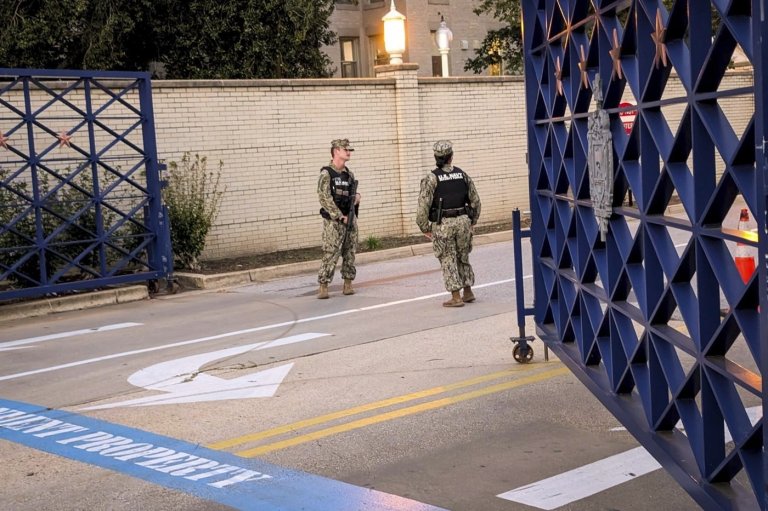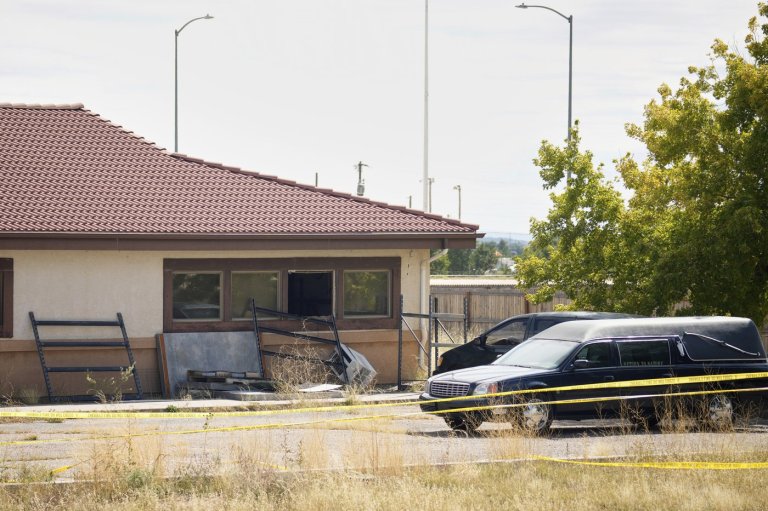Suicide bomber hits recruits gathered at police academy in Yemeni capital, killing at least 37
SANAA, Yemen – A suicide bomber rammed his explosives-laden minibus into a gathering of recruits outside a police academy in the heart of Yemen’s capital on Wednesday, killing at least 37 people in the latest high-profile attack to hit Sanaa.
No one immediately claimed responsibility for the attack, but Yemen’s local al-Qaida branch has carried out similar assaults in the past against the army and police in this impoverished Arabian Peninsula country, viewing them as U.S. proxies.
The U.S. provides counter-terrorism training and assistance to Yemeni forces, and frequently carries out drone strikes targeting al-Qaida militants in Yemen.
At the scene of the blast, the dead and wounded lay on a sidewalk against a wall. On the pavement, water sprayed by firefighters to extinguish the blaze from the explosion of the minibus mixed with pools of blood. A charred taxi cab smouldered near what remained of the minibus, meters (yards) from the gate of the police academy, located in a residential area.
The bomber struck as cadets were lined up outside the academy, preparing to enrol, witnesses said.
“It went off among all of them, and they flew through the air,” eyewitness Jamil al-Khaleedi told The Associated Press.
Police Brig. Gen. Abdulaziz al-Qudsi said at least 37 people were killed and 66 wounded. Another security official, speaking on condition of anonymity because he was not authorized to talk to media, said at least three civilians were among the dead.
Both the United Nations and the United States condemned the attack and expressed condolences to the victims and their families.
Violence has soared in Yemen since Shiite rebels known as Houthis swept down from their northern strongholds last year, capturing Sanaa and other cities.
The rebels are challenging the government of President Abed Rabbo Mansour Hadi, demanding a greater share of power. But on occasion, the rebels have also gone after al-Qaida, with clashes and targeted attacks leaving scores dead. Critics of the rebels view them as a proxy for Shiite powerhouse Iran — charges the rebels deny.
Tribal leaders and Yemeni officials have said the rising power of the Houthis, their advance into Sunni areas and the backlash over drone strikes has caused al-Qaida to surge in strength and find new recruits.
Washington considers al-Qaida’s Yemen affiliate, linked to several failed attacks in the U.S., to be the most dangerous branch of the global terror network.
In 2012, the group claimed responsibility for another devastating attack on security forces — a suicide bombing at a rehearsal for a military parade in May in Sanaa that killed 96 soldiers and wounded at least 200.
___
Associated Press writer Cara Anna contributed from the United Nations.
Join the Conversation!
Want to share your thoughts, add context, or connect with others in your community?
You must be logged in to post a comment.

















